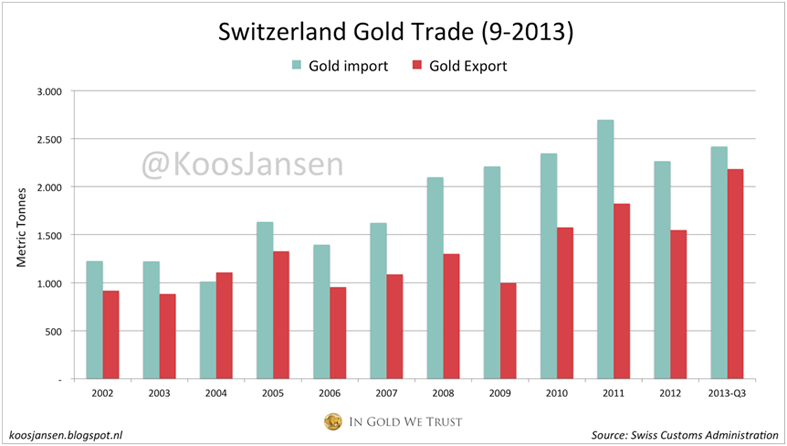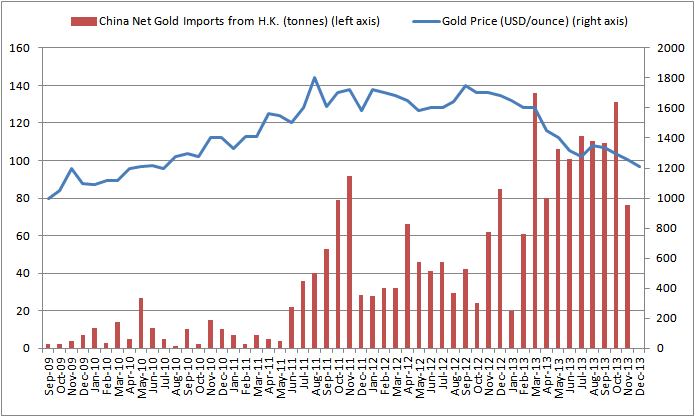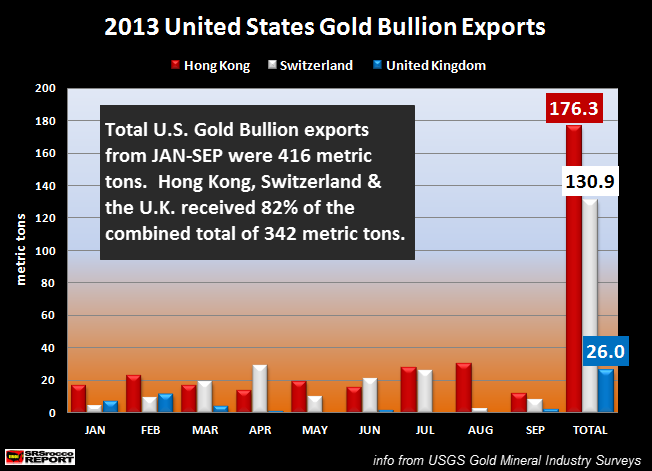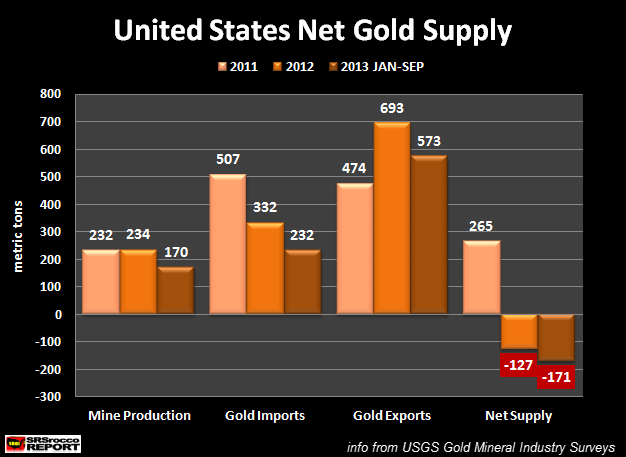The Financial Times is reporting that UBS has agreed to settle charges against it by the UK’s Financial Conduct Authority that it engaged in the manipulation of the gold and silver markets. While it may come as a surprise to chart wranglers like Trader Dan or interminably hot air windbags like Dennis Gartman and Martin Armstrong that gold and silver are manipulated by the big bullion banks, UBS has de facto admitted to such illegal activity.
Current list of Participants – Status 26 May 2014
Chairman
FRA Castries, Henri de Chairman and CEO, AXA Group
FRA Castries, Henri de Chairman and CEO, AXA Group
DEU Achleitner, Paul M. Chairman of the Supervisory Board, Deutsche Bank AG
DEU Ackermann, Josef Former CEO, Deutsche Bank AG
GBR Agius, Marcus Non-Executive Chairman, PA Consulting Group
FIN Alahuhta, Matti Member of the Board, KONE; Chairman, Aalto University Foundation
GBR Alexander, Helen Chairman, UBM plc
USA Alexander, Keith B. Former Commander, U.S. Cyber Command; Former Director, National Security Agency
USA Altman, Roger C. Executive Chairman, Evercore
FIN Apunen, Matti Director, Finnish Business and Policy Forum EVA
DEU Asmussen, Jörg State Secretary of Labour and Social Affairs
HUN Bajnai, Gordon Former Prime Minister; Party Leader, Together 2014
GBR Balls, Edward M. Shadow Chancellor of the Exchequer
PRT Balsemão, Francisco Pinto Chairman, Impresa SGPS
FRA Baroin, François Member of Parliament (UMP); Mayor of Troyes
FRA Baverez, Nicolas Partner, Gibson, Dunn & Crutcher LLP
USA Berggruen, Nicolas Chairman, Berggruen Institute on Governance
ITA Bernabè, Franco Chairman, FB Group SRL
DNK Besenbacher, Flemming Chairman, The Carlsberg Group
NLD Beurden, Ben van CEO, Royal Dutch Shell plc
SWE Bildt, Carl Minister for Foreign Affairs
NOR Brandtzæg, Svein Richard President and CEO, Norsk Hydro ASA
INT Breedlove, Philip M. Supreme Allied Commander Europe
AUT Bronner, Oscar Publisher, Der STANDARD Verlagsgesellschaft m.b.H.
SWE Buskhe, Håkan President and CEO, Saab AB
TUR Çandar, Cengiz Senior Columnist, Al Monitor and Radikal
ESP Cebrián, Juan Luis Executive Chairman, Grupo PRISA
FRA Chalendar, Pierre-André de Chairman and CEO, Saint-Gobain
CAN Clark, W. Edmund Group President and CEO, TD Bank Group
INT Coeuré, Benoît Member of the Executive Board, European Central Bank
IRL Coveney, Simon Minister for Agriculture, Food and the Marine
GBR Cowper-Coles, Sherard Senior Adviser to the Group Chairman and Group CEO, HSBC Holdings plc
BEL Davignon, Etienne Minister of State
USA Donilon, Thomas E. Senior Partner, O’Melveny and Myers; Former U.S. National Security Advisor
DEU Döpfner, Mathias CEO, Axel Springer SE
GBR Dudley, Robert Group Chief Executive, BP plc
FIN Ehrnrooth, Henrik Chairman, Caverion Corporation, Otava and Pöyry PLC
ITA Elkann, John Chairman, Fiat S.p.A.
DEU Enders, Thomas CEO, Airbus Group
DNK Federspiel, Ulrik Executive Vice President, Haldor Topsøe A/S
USA Feldstein, Martin S. Professor of Economics, Harvard University; President Emeritus, NBER
CAN Ferguson, Brian President and CEO, Cenovus Energy Inc.
GBR Flint, Douglas J. Group Chairman, HSBC Holdings plc
ESP García-Margallo, José Manuel Minister of Foreign Affairs and Cooperation
USA Gfoeller, Michael Independent Consultant
TUR Göle, Nilüfer Professor of Sociology, École des Hautes Études en Sciences Sociales
USA Greenberg, Evan G. Chairman and CEO, ACE Group
GBR Greening, Justine Secretary of State for International Development
NLD Halberstadt, Victor Professor of Economics, Leiden University
USA Hockfield, Susan President Emerita, Massachusetts Institute of Technology
NOR Høegh, Leif O. Chairman, Höegh Autoliners AS
NOR Høegh, Westye Senior Advisor, Höegh Autoliners AS
USA Hoffman, Reid Co-Founder and Executive Chairman, LinkedIn
CHN Huang, Yiping Professor of Economics, National School of Development, Peking University
USA Jackson, Shirley Ann President, Rensselaer Polytechnic Institute
USA Jacobs, Kenneth M. Chairman and CEO, Lazard
USA Johnson, James A. Chairman, Johnson Capital Partners
USA Karp, Alex CEO, Palantir Technologies
USA Katz, Bruce J. Vice President and Co-Director, Metropolitan Policy Program, The Brookings Institution
CAN Kenney, Jason T. Minister of Employment and Social Development
GBR Kerr, John Deputy Chairman, Scottish Power
USA Kissinger, Henry A. Chairman, Kissinger Associates, Inc.
USA Kleinfeld, Klaus Chairman and CEO, Alcoa
TUR Koç, Mustafa Chairman, Koç Holding A.S.
DNK Kragh, Steffen President and CEO, Egmont
USA Kravis, Henry R. Co-Chairman and Co-CEO, Kohlberg Kravis Roberts & Co.
USA Kravis, Marie-Josée Senior Fellow and Vice Chair, Hudson Institute
CHE Kudelski, André Chairman and CEO, Kudelski Group
INT Lagarde, Christine Managing Director, International Monetary Fund
BEL Leysen, Thomas Chairman of the Board of Directors, KBC Group
USA Li, Cheng Director, John L.Thornton China Center,The Brookings Institution
SWE Lifvendahl, Tove Political Editor in Chief, Svenska Dagbladet
CHN Liu, He Minister, Office of the Central Leading Group on Financial and Economic Affairs
PRT Macedo, Paulo Minister of Health
FRA Macron, Emmanuel Deputy Secretary General of the Presidency
ITA Maggioni, Monica Editor-in-Chief, Rainews24, RAI TV
GBR Mandelson, Peter Chairman, Global Counsel LLP
USA McAfee, Andrew Principal Research Scientist, Massachusetts Institute of Technology
PRT Medeiros, Inês de Member of Parliament, Socialist Party
GBR Micklethwait, John Editor-in-Chief, The Economist
GRC Mitsotaki, Alexandra Chair, ActionAid Hellas
ITA Monti, Mario Senator-for-life; President, Bocconi University
USA Mundie, Craig J. Senior Advisor to the CEO, Microsoft Corporation
CAN Munroe-Blum, Heather Professor of Medicine and Principal (President) Emerita, McGill University
USA Murray, Charles A. W.H. Brady Scholar, American Enterprise Institute for Public Policy Research
NLD Netherlands, H.R.H. Princess Beatrix of the
ESP Nin Génova, Juan María Deputy Chairman and CEO, CaixaBank
FRA Nougayrède, Natalie Director and Executive Editor, Le Monde
DNK Olesen, Søren-Peter Professor; Member of the Board of Directors, The Carlsberg Foundation
FIN Ollila, Jorma Chairman, Royal Dutch Shell, plc; Chairman, Outokumpu Plc
TUR Oran, Umut Deputy Chairman, Republican People’s Party (CHP)
GBR Osborne, George Chancellor of the Exchequer
FRA Pellerin, Fleur State Secretary for Foreign Trade
USA Perle, Richard N. Resident Fellow, American Enterprise Institute
USA Petraeus, David H. Chairman, KKR Global Institute
CAN Poloz, Stephen S. Governor, Bank of Canada
INT Rasmussen, Anders Fogh Secretary General, NATO
DNK Rasmussen, Jørgen Huno Chairman of the Board of Trustees, The Lundbeck Foundation
INT Reding, Viviane Vice President and Commissioner for Justice, Fundamental Rights and Citizenship, European Commission
USA Reed, Kasim Mayor of Atlanta
CAN Reisman, Heather M. Chair and CEO, Indigo Books & Music Inc.
NOR Reiten, Eivind Chairman, Klaveness Marine Holding AS
DEU Röttgen, Norbert Chairman, Foreign Affairs Committee, German Bundestag
USA Rubin, Robert E. Co-Chair, Council on Foreign Relations; Former Secretary of the Treasury
USA Rumer, Eugene Senior Associate and Director, Russia and Eurasia Program, Carnegie Endowment for International Peace
NOR Rynning-Tønnesen, Christian President and CEO, Statkraft AS
NLD Samsom, Diederik M. Parliamentary Leader PvdA (Labour Party)
GBR Sawers, John Chief, Secret Intelligence Service
NLD Scheffer, Paul J. Author; Professor of European Studies, Tilburg University
NLD Schippers, Edith Minister of Health, Welfare and Sport
USA Schmidt, Eric E. Executive Chairman, Google Inc.
AUT Scholten, Rudolf CEO, Oesterreichische Kontrollbank AG
USA Shih, Clara CEO and Founder, Hearsay Social
FIN Siilasmaa, Risto K. Chairman of the Board of Directors and Interim CEO, Nokia Corporation
ESP Spain, H.M. the Queen of
USA Spence, A. Michael Professor of Economics, New York University
FIN Stadigh, Kari President and CEO, Sampo plc
USA Summers, Lawrence H. Charles W. Eliot University Professor, Harvard University
IRL Sutherland, Peter D. Chairman, Goldman Sachs International; UN Special Representative for Migration
SWE Svanberg, Carl-Henric Chairman, Volvo AB and BP plc
TUR Taftalı, A. Ümit Member of the Board, Suna and Inan Kiraç Foundation
USA Thiel, Peter A. President, Thiel Capital
DNK Topsøe, Henrik Chairman, Haldor Topsøe A/S
GRC Tsoukalis, Loukas President, Hellenic Foundation for European and Foreign Policy
NOR Ulltveit-Moe, Jens Founder and CEO, Umoe AS
INT Üzümcü, Ahmet Director-General, Organisation for the Prohibition of Chemical Weapons
CHE Vasella, Daniel L. Honorary Chairman, Novartis International
FIN Wahlroos, Björn Chairman, Sampo plc
SWE Wallenberg, Jacob Chairman, Investor AB
SWE Wallenberg, Marcus Chairman of the Board of Directors, Skandinaviska Enskilda Banken AB
USA Warsh, Kevin M. Distinguished Visiting Fellow and Lecturer, Stanford University
GBR Wolf, Martin H. Chief Economics Commentator, The Financial Times
USA Wolfensohn, James D. Chairman and CEO, Wolfensohn and Company
NLD Zalm, Gerrit Chairman of the Managing Board, ABN-AMRO Bank N.V.
GRC Zanias, George Chairman of the Board, National Bank of Greece
USA Zoellick, Robert B. Chairman, Board of International Advisors, The Goldman Sachs Group
DEU Ackermann, Josef Former CEO, Deutsche Bank AG
GBR Agius, Marcus Non-Executive Chairman, PA Consulting Group
FIN Alahuhta, Matti Member of the Board, KONE; Chairman, Aalto University Foundation
GBR Alexander, Helen Chairman, UBM plc
USA Alexander, Keith B. Former Commander, U.S. Cyber Command; Former Director, National Security Agency
USA Altman, Roger C. Executive Chairman, Evercore
FIN Apunen, Matti Director, Finnish Business and Policy Forum EVA
DEU Asmussen, Jörg State Secretary of Labour and Social Affairs
HUN Bajnai, Gordon Former Prime Minister; Party Leader, Together 2014
GBR Balls, Edward M. Shadow Chancellor of the Exchequer
PRT Balsemão, Francisco Pinto Chairman, Impresa SGPS
FRA Baroin, François Member of Parliament (UMP); Mayor of Troyes
FRA Baverez, Nicolas Partner, Gibson, Dunn & Crutcher LLP
USA Berggruen, Nicolas Chairman, Berggruen Institute on Governance
ITA Bernabè, Franco Chairman, FB Group SRL
DNK Besenbacher, Flemming Chairman, The Carlsberg Group
NLD Beurden, Ben van CEO, Royal Dutch Shell plc
SWE Bildt, Carl Minister for Foreign Affairs
NOR Brandtzæg, Svein Richard President and CEO, Norsk Hydro ASA
INT Breedlove, Philip M. Supreme Allied Commander Europe
AUT Bronner, Oscar Publisher, Der STANDARD Verlagsgesellschaft m.b.H.
SWE Buskhe, Håkan President and CEO, Saab AB
TUR Çandar, Cengiz Senior Columnist, Al Monitor and Radikal
ESP Cebrián, Juan Luis Executive Chairman, Grupo PRISA
FRA Chalendar, Pierre-André de Chairman and CEO, Saint-Gobain
CAN Clark, W. Edmund Group President and CEO, TD Bank Group
INT Coeuré, Benoît Member of the Executive Board, European Central Bank
IRL Coveney, Simon Minister for Agriculture, Food and the Marine
GBR Cowper-Coles, Sherard Senior Adviser to the Group Chairman and Group CEO, HSBC Holdings plc
BEL Davignon, Etienne Minister of State
USA Donilon, Thomas E. Senior Partner, O’Melveny and Myers; Former U.S. National Security Advisor
DEU Döpfner, Mathias CEO, Axel Springer SE
GBR Dudley, Robert Group Chief Executive, BP plc
FIN Ehrnrooth, Henrik Chairman, Caverion Corporation, Otava and Pöyry PLC
ITA Elkann, John Chairman, Fiat S.p.A.
DEU Enders, Thomas CEO, Airbus Group
DNK Federspiel, Ulrik Executive Vice President, Haldor Topsøe A/S
USA Feldstein, Martin S. Professor of Economics, Harvard University; President Emeritus, NBER
CAN Ferguson, Brian President and CEO, Cenovus Energy Inc.
GBR Flint, Douglas J. Group Chairman, HSBC Holdings plc
ESP García-Margallo, José Manuel Minister of Foreign Affairs and Cooperation
USA Gfoeller, Michael Independent Consultant
TUR Göle, Nilüfer Professor of Sociology, École des Hautes Études en Sciences Sociales
USA Greenberg, Evan G. Chairman and CEO, ACE Group
GBR Greening, Justine Secretary of State for International Development
NLD Halberstadt, Victor Professor of Economics, Leiden University
USA Hockfield, Susan President Emerita, Massachusetts Institute of Technology
NOR Høegh, Leif O. Chairman, Höegh Autoliners AS
NOR Høegh, Westye Senior Advisor, Höegh Autoliners AS
USA Hoffman, Reid Co-Founder and Executive Chairman, LinkedIn
CHN Huang, Yiping Professor of Economics, National School of Development, Peking University
USA Jackson, Shirley Ann President, Rensselaer Polytechnic Institute
USA Jacobs, Kenneth M. Chairman and CEO, Lazard
USA Johnson, James A. Chairman, Johnson Capital Partners
USA Karp, Alex CEO, Palantir Technologies
USA Katz, Bruce J. Vice President and Co-Director, Metropolitan Policy Program, The Brookings Institution
CAN Kenney, Jason T. Minister of Employment and Social Development
GBR Kerr, John Deputy Chairman, Scottish Power
USA Kissinger, Henry A. Chairman, Kissinger Associates, Inc.
USA Kleinfeld, Klaus Chairman and CEO, Alcoa
TUR Koç, Mustafa Chairman, Koç Holding A.S.
DNK Kragh, Steffen President and CEO, Egmont
USA Kravis, Henry R. Co-Chairman and Co-CEO, Kohlberg Kravis Roberts & Co.
USA Kravis, Marie-Josée Senior Fellow and Vice Chair, Hudson Institute
CHE Kudelski, André Chairman and CEO, Kudelski Group
INT Lagarde, Christine Managing Director, International Monetary Fund
BEL Leysen, Thomas Chairman of the Board of Directors, KBC Group
USA Li, Cheng Director, John L.Thornton China Center,The Brookings Institution
SWE Lifvendahl, Tove Political Editor in Chief, Svenska Dagbladet
CHN Liu, He Minister, Office of the Central Leading Group on Financial and Economic Affairs
PRT Macedo, Paulo Minister of Health
FRA Macron, Emmanuel Deputy Secretary General of the Presidency
ITA Maggioni, Monica Editor-in-Chief, Rainews24, RAI TV
GBR Mandelson, Peter Chairman, Global Counsel LLP
USA McAfee, Andrew Principal Research Scientist, Massachusetts Institute of Technology
PRT Medeiros, Inês de Member of Parliament, Socialist Party
GBR Micklethwait, John Editor-in-Chief, The Economist
GRC Mitsotaki, Alexandra Chair, ActionAid Hellas
ITA Monti, Mario Senator-for-life; President, Bocconi University
USA Mundie, Craig J. Senior Advisor to the CEO, Microsoft Corporation
CAN Munroe-Blum, Heather Professor of Medicine and Principal (President) Emerita, McGill University
USA Murray, Charles A. W.H. Brady Scholar, American Enterprise Institute for Public Policy Research
NLD Netherlands, H.R.H. Princess Beatrix of the
ESP Nin Génova, Juan María Deputy Chairman and CEO, CaixaBank
FRA Nougayrède, Natalie Director and Executive Editor, Le Monde
DNK Olesen, Søren-Peter Professor; Member of the Board of Directors, The Carlsberg Foundation
FIN Ollila, Jorma Chairman, Royal Dutch Shell, plc; Chairman, Outokumpu Plc
TUR Oran, Umut Deputy Chairman, Republican People’s Party (CHP)
GBR Osborne, George Chancellor of the Exchequer
FRA Pellerin, Fleur State Secretary for Foreign Trade
USA Perle, Richard N. Resident Fellow, American Enterprise Institute
USA Petraeus, David H. Chairman, KKR Global Institute
CAN Poloz, Stephen S. Governor, Bank of Canada
INT Rasmussen, Anders Fogh Secretary General, NATO
DNK Rasmussen, Jørgen Huno Chairman of the Board of Trustees, The Lundbeck Foundation
INT Reding, Viviane Vice President and Commissioner for Justice, Fundamental Rights and Citizenship, European Commission
USA Reed, Kasim Mayor of Atlanta
CAN Reisman, Heather M. Chair and CEO, Indigo Books & Music Inc.
NOR Reiten, Eivind Chairman, Klaveness Marine Holding AS
DEU Röttgen, Norbert Chairman, Foreign Affairs Committee, German Bundestag
USA Rubin, Robert E. Co-Chair, Council on Foreign Relations; Former Secretary of the Treasury
USA Rumer, Eugene Senior Associate and Director, Russia and Eurasia Program, Carnegie Endowment for International Peace
NOR Rynning-Tønnesen, Christian President and CEO, Statkraft AS
NLD Samsom, Diederik M. Parliamentary Leader PvdA (Labour Party)
GBR Sawers, John Chief, Secret Intelligence Service
NLD Scheffer, Paul J. Author; Professor of European Studies, Tilburg University
NLD Schippers, Edith Minister of Health, Welfare and Sport
USA Schmidt, Eric E. Executive Chairman, Google Inc.
AUT Scholten, Rudolf CEO, Oesterreichische Kontrollbank AG
USA Shih, Clara CEO and Founder, Hearsay Social
FIN Siilasmaa, Risto K. Chairman of the Board of Directors and Interim CEO, Nokia Corporation
ESP Spain, H.M. the Queen of
USA Spence, A. Michael Professor of Economics, New York University
FIN Stadigh, Kari President and CEO, Sampo plc
USA Summers, Lawrence H. Charles W. Eliot University Professor, Harvard University
IRL Sutherland, Peter D. Chairman, Goldman Sachs International; UN Special Representative for Migration
SWE Svanberg, Carl-Henric Chairman, Volvo AB and BP plc
TUR Taftalı, A. Ümit Member of the Board, Suna and Inan Kiraç Foundation
USA Thiel, Peter A. President, Thiel Capital
DNK Topsøe, Henrik Chairman, Haldor Topsøe A/S
GRC Tsoukalis, Loukas President, Hellenic Foundation for European and Foreign Policy
NOR Ulltveit-Moe, Jens Founder and CEO, Umoe AS
INT Üzümcü, Ahmet Director-General, Organisation for the Prohibition of Chemical Weapons
CHE Vasella, Daniel L. Honorary Chairman, Novartis International
FIN Wahlroos, Björn Chairman, Sampo plc
SWE Wallenberg, Jacob Chairman, Investor AB
SWE Wallenberg, Marcus Chairman of the Board of Directors, Skandinaviska Enskilda Banken AB
USA Warsh, Kevin M. Distinguished Visiting Fellow and Lecturer, Stanford University
GBR Wolf, Martin H. Chief Economics Commentator, The Financial Times
USA Wolfensohn, James D. Chairman and CEO, Wolfensohn and Company
NLD Zalm, Gerrit Chairman of the Managing Board, ABN-AMRO Bank N.V.
GRC Zanias, George Chairman of the Board, National Bank of Greece
USA Zoellick, Robert B. Chairman, Board of International Advisors, The Goldman Sachs Group
AUT Austria
BEL Belgium
CAN Canada
CHE Switzerland
CHN China
DEU Germany
DNK Denmark
ESP Spain
FIN Finland
FRA France
GBR Great Britain
GRC Greece
HUN Hungary
INT International
IRL Ireland
ITA Italy
NLD Netherlands
NOR Norway
PRT Portugal
SWE Sweden
TUR Turkey
USA United States of America
BEL Belgium
CAN Canada
CHE Switzerland
CHN China
DEU Germany
DNK Denmark
ESP Spain
FIN Finland
FRA France
GBR Great Britain
GRC Greece
HUN Hungary
INT International
IRL Ireland
ITA Italy
NLD Netherlands
NOR Norway
PRT Portugal
SWE Sweden
TUR Turkey
USA United States of America























.png)




